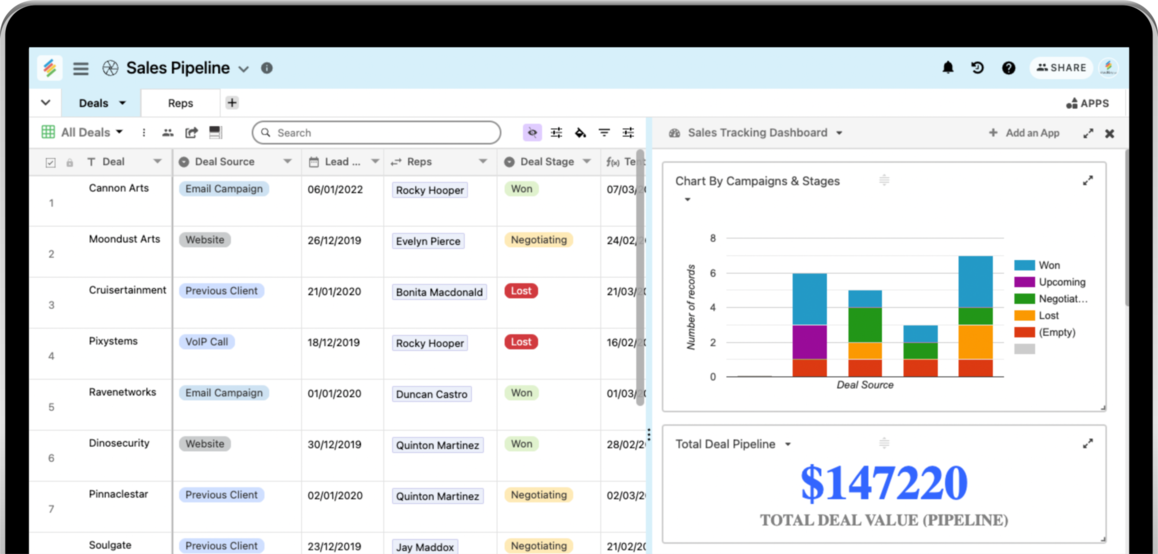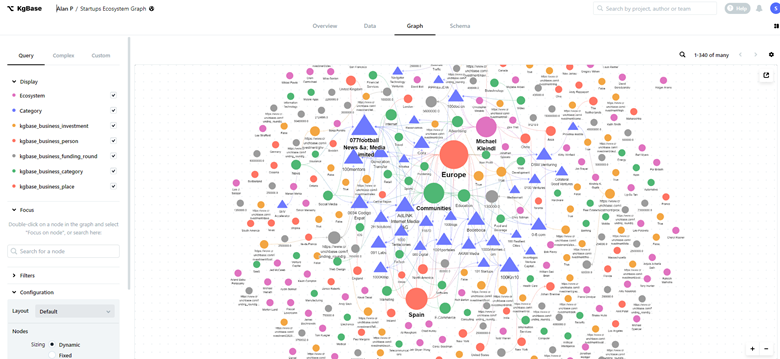Exploring the Advantages of Scalable Data Sources That Require No Coding Abilities for Reliable Information Management Solutions
The introduction of scalable databases that eliminate the necessity for coding skills presents a transformative possibility for organizations looking for efficient information monitoring solutions. As we take into consideration the ramifications of such improvements, it comes to be important to check out just how they can improve the landscape of information management and drive sustainable growth in an affordable atmosphere.
Boosted Access for Users
Enhanced access for users is an important aspect of scalable data sources, making certain that data administration systems are easy to use and instinctive. In a period where data-driven decisions are paramount, availability enables a wider variety of users, consisting of those without considerable technical expertise, to involve with database systems successfully. This democratization of information access helps with improved collaboration throughout departments, empowering employees to extract insights and make notified decisions.
User-friendly user interfaces, such as aesthetic information and drag-and-drop attributes depiction, streamline intricate data interactions. These enhancements reduce the learning contour linked with standard data source management, making it possible for customers to concentrate on leveraging data as opposed to facing technological intricacies. Additionally, scalable data sources typically include real-time analytics and customizable dashboards, offering individuals with immediate understandings tailored to their certain demands.

Cost-Effectiveness and Source Savings
Effective data management not only rests on access yet additionally on cost-effectiveness and resource financial savings. Scalable data sources created for customers without any coding abilities substantially reduce monetary problems typically linked with typical data source administration systems. By eliminating the demand for specialized shows expertise, companies can allot their resources more effectively, concentrating funds on core business tasks instead of considerable training or employing skilled personnel.
Furthermore, these databases usually utilize cloud-based options, which better reduce expenses connected to equipment and upkeep. Organizations can scale their data source remedies according to their needs, staying clear of the expenditures sustained from over-provisioning resources. This adaptability suggests organizations can adjust to changing needs without incurring unnecessary prices, leading to significant long-term cost savings.
Additionally, user-friendly interfaces simplify data access and monitoring processes, minimizing the moment invested on management jobs. This performance converts right into labor cost savings, allowing teams to concentrate on calculated campaigns as opposed to routine upkeep. On the whole, taking on scalable databases that require no coding skills promotes a much more cost-effective method to information management, enabling companies to maximize their resources while preserving high degrees of functional efficiency.
Improved Partnership Throughout Teams

Moreover, scalable databases facilitate seamless communication amongst group participants. With straightforward user interfaces that call for no coding skills, workers can conveniently develop, customize, and share reports or dashboards customized to their specific needs. This democratization of information equips non-technical users to contribute understandings, improving the collective setting.
Furthermore, these data sources sustain concurrent accessibility, enabling numerous individuals to work with the very same dataset simultaneously. This function boosts efficiency, as teams can take part in joint data evaluation without the danger of version control issues. The ability to leave notes or comments straight within the database further advertises dialogue and clarifies data interpretations.
Streamlined Information Management Processes
In today's data-driven setting, companies identify the necessity of structured data management refines to make best use of effectiveness and accuracy. By leveraging scalable databases that call for no coding abilities, businesses can simplify their information handling and reduce the complexities generally associated with typical data source systems. This availability empowers non-technical customers to engage straight with data, promoting quicker decision-making and reducing dependence on specialized IT personnel.
Structured data management procedures boost process by automating routine jobs such as data access, recognition, and reporting. Automated information integration guarantees that details from various resources is accumulated seamlessly, eliminating silos and promoting a merged view of critical organization metrics (no-code). Moreover, user-friendly interfaces permit workers to adjust information easily, allowing them to produce understandings that drive tactical efforts without the demand for comprehensive training.
This efficiency not only increases functional procedures but also minimizes the capacity for human mistake, guaranteeing that data stays trusted and precise. Ultimately, structured information administration processes via scalable data sources lead to boosted productivity, enabling organizations to focus on core activities while guaranteeing that their information administration practices are efficient and effective.
Scalability for Expanding Organizations

For expanding enterprises, the capacity to scale up or down is important. A scalable data source can manage an influx of data generated from new consumers, products, or services, guaranteeing that organization operations remain nonstop. Additionally, these databases offer the capability to take care of peak lots effectively, which is important during periods of quick development or seasonal spikes.
Additionally, many scalable database solutions are designed with straightforward interfaces that need no coding skills, empowering non-technical team to take care of information effectively (no-code). This democratization of information monitoring enables companies to designate sources strategically and decrease dependency on specialized IT employees
Eventually, taking on a scalable database not only improves functional efficiency however likewise cultivates an atmosphere where companies can innovate and evolve without the constraints of typical database systems. This adaptability settings companies for long-term success in today's affordable landscape.
Verdict
To conclude, scalable databases that require no coding abilities supply significant benefits for efficient information management. These systems boost accessibility for non-technical individuals, minimize operational expenses, and promote collaboration across teams. By simplifying data administration processes and offering scalability for growing services, such services make it possible for organizations to adapt to linked here changing needs efficiently. Eventually, the fostering of these user-friendly data sources cultivates technology and placements organizations for long-lasting success in a dynamic setting.
Enhanced accessibility for customers is a critical element of scalable databases, ensuring that data management systems are easy to use and intuitive.Straightforward user interfaces, such as drag-and-drop features and aesthetic data representation, simplify intricate data communications. Generally, adopting scalable data sources that need no coding abilities cultivates a more cost-effective strategy to information administration, allowing companies to maximize their resources while maintaining high levels of operational effectiveness.
By leveraging scalable databases that require no coding abilities, organizations can streamline their information handling and reduce the why not try here intricacies usually linked with conventional database systems - no-code.Streamlined data administration procedures boost process by automating routine tasks such as information entrance, recognition, and reporting